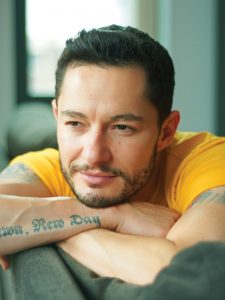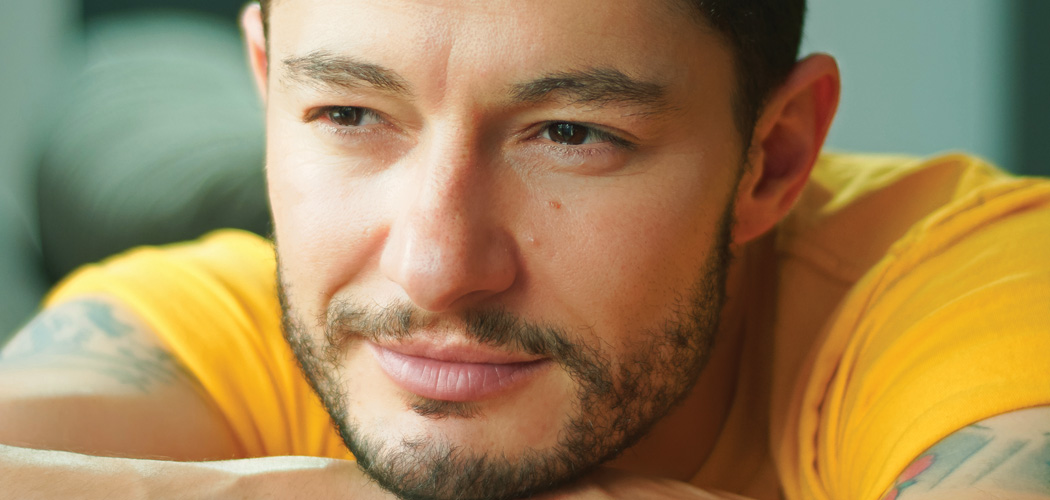London-born transgender filmmaker Jake Graf shares his experience of being a prominent trans man ahead of his film screening and discussion evening – part of the Pride in London Festival.
What is life like being a trans man in London in 2017?
I think that day-to-day life for a trans person in London varies wildly according to age, family support and background, the differences even starker between trans men and women. Whereas trans men for the large part are able to live an unobtrusive, ‘stealth’ lifestyle, moving mostly unnoticed and unreadable as trans, most of my trans female friends report a much more difficult existence: one of prejudice, daily verbal attacks, bigotry and discrimination. My experience is slightly different to many of my trans male friends in that I choose to be ‘out’ and vocal in an attempt to give visibility to our community, but I work in an industry where having a unique voice and experience is usually seen as an advantage, so that hasn’t really harmed me. I know that for many of my friends it’s important for them to live a more mainstream, ‘heteronormative’ lifestyle, their trans status unimportant and irrelevant to who they are, which of course is entirely their decision, and their right.
What trans achievements should the trans – and wider LGBQ+ community – celebrate?
When I was growing up in 90s England, there were no trans role models to look up to, and it made for a truly isolating experience to an already lost and confused kid. I think we forget how recently people like Tom Daley, Duncan James and Nick Grimshaw – and notably few young gay women – have been out and visible for gay youth to aspire to. But for trans folk, it has taken decades for us to cease to be the butt of the joke or the figure of ridicule in films and the media. When you look at how far we’ve come in just the last five years, it’s astonishing: Laverne Cox gracing the cover of Time magazine, British trans actresses Rebecca Root and Annie Wallace as regular cast members on Boy Meets Girl and Hollyoaks respectively, and the Oscar nominated trans period piece The Danish Girl exceeding all expectations in the box office. It seems like the media is finally on board with positive trans representation, which has finally helped give trans youth some positive role models to look up to.
Another achievement worth noting is Stonewall’s pledge to support the ‘T’ in ‘LGBT’, and include the trans community in their lobbying and campaigning for rights and equality. Stonewall’s Trans Advisory Group now works closely with the broader organisation to make sure that all sections of the LGBT community are supported equally, and I firmly believe that that support has already achieved unquantifiable progress for trans folk across the UK.

What challenges for the trans community do you think still need to be overcome?
When as few as one in 1,000 of us identify as trans, it is a relatively small number of people that actually know someone trans, and so more often than not we remain an unknown entity, and something to be feared or distrusted. We have been painted negatively in the press for so long that lasting damage has inevitably been done. There is a popular and dangerous misconception that we are trying to ‘trick’ people, pretending to be something that we’re not as opposed to simply wanting to live a quiet, unchallenged life, and this suspicion can often result in violence, particularly against trans women.
Moreover, there is still huge stigma attached to dating someone trans. There are also endless accounts of trans children being bullied and tormented in school just for wanting to be themselves, and the trans suicide rate remains one of the highest of any minority group. We are already a prominent part of the LGBT community, but it’s when someone in the public eye is willing to proudly love someone trans, and a child can come out at school safely and happily without fearing the repercussions, that real progress will have been made.
How has filmmaking helped you realise further LGBT rights and achievements?
I always aim to elicit some sort of positive change with my films, and to give representation and a voice to people who may never see themselves on screen, and these stories do seem to resonate deeply with people. My short film Chance is about two older, larger men who fall in love, one a widower, one a Muslim asylum seeker, and was selected by the British Film Council to screen worldwide as part of their pioneering ‘FiveFilms4Freedom’ project. The reaction after the film was broadcast to 142 countries was incredible: hundreds of emails from gay men in largely Arab and Muslim countries who had finally seen themselves on screen for the first time, and for even a moment not felt quite so alone.
My mini short Headspace, which shows the daily trials and tribulations of life as a trans person in 2017, went viral with over four million hits and received an outpouring of support and positive feedback. It is apparently being used as a ‘coming out’ tool and is now screened in schools, prisons and hospitals worldwide in an aim to educate and promote understanding of the trans experience. It really is an immense privilege to be able to affect any sort of change, let alone change that echoes throughout a community of which I am so proud to be a part.
Filmmaker Jake Graf: In Discussion is on this Thursday (6 Jul) from 6.15pm at Warner Bros, Warner House, 98 Theobalds Road, Holborn, WC1X 8WB.
Entry is free but tickets must be booked via prideinlondon.org/events.














